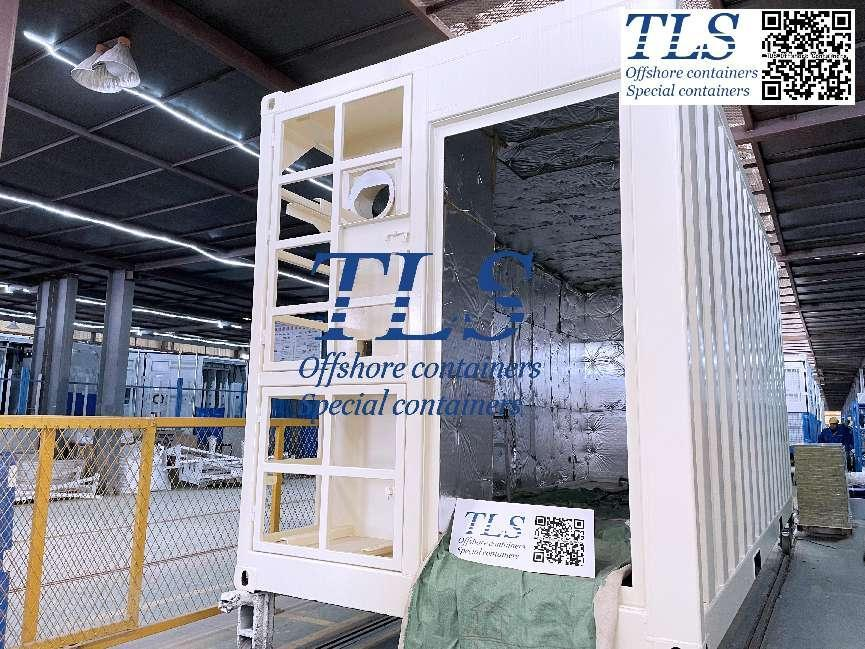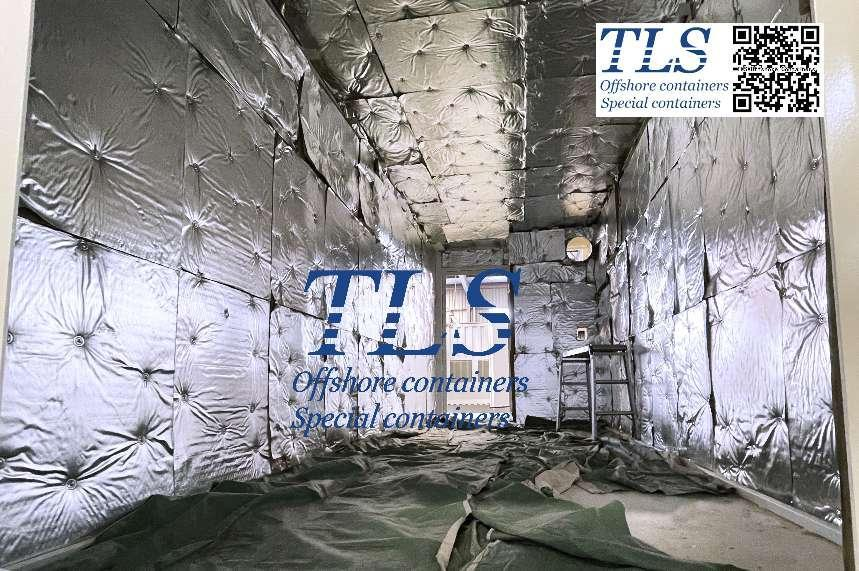|
Offshore container shell insulation is an essential aspect of maintaining the integrity and safety of offshore operations. These containers are used to store and transport materials and equipment to and from offshore oil and gas rigs, wind farms, and other maritime facilities. In this article, we will explore the importance of offshore container shell insulation and how it can benefit offshore operators. What is offshore container shell insulation? Offshore container shell insulation refers to the process of insulating the outer shell of a container used in offshore operations. This insulation serves to protect the container and its contents from extreme temperature variations, humidity, and other environmental factors that can cause damage. The insulation material used for offshore containers is typically high-density polyurethane foam, which provides excellent insulation and protection against the elements. This material is lightweight, durable, and has excellent insulation properties, making it ideal for offshore container applications. Why is offshore container shell insulation important? Offshore container shell insulation is essential for several reasons. First and foremost, it helps protect the contents of the container from extreme temperature variations. Offshore operations often take place in harsh environments where temperatures can fluctuate drastically, and without proper insulation, the contents of the container can be damaged or destroyed. In addition to temperature protection, offshore container shell insulation also helps to protect against humidity and moisture. Offshore environments are often humid, and this can lead to corrosion and other forms of damage to the container and its contents. Insulation helps to prevent moisture from entering the container and damaging its contents. Furthermore, offshore container shell insulation also helps to reduce energy consumption. When containers are not properly insulated, they require more energy to maintain the desired temperature inside. This increased energy consumption can lead to higher costs and a greater environmental impact. By insulating offshore containers, energy consumption can be reduced, resulting in cost savings and a lower carbon footprint. Benefits of offshore container shell insulation The benefits of offshore container shell insulation are numerous. Here are some of the most significant advantages:
Conclusion: Offshore container shell insulation is a critical aspect of maintaining the integrity and safety of offshore operations. Insulating the outer shell of these containers helps protect against extreme temperature variations, humidity, and other environmental factors that can cause damage. The benefits of offshore container shell insulation include protecting the contents of the container, reducing energy consumption, enhancing the lifespan of offshore containers, improving safety, and ensuring compliance with industry regulations and standards. By investing in offshore container shell insulation, offshore operators can enjoy greater safety, efficiency, and cost savings in their operations. TLS Offshore Containers / TLS Special Containers is a global supplier of standard and customised containerised solutions. Wherever you are in the world TLS can help you, please contact us. Written by OliverComments are closed.
|
Archives
July 2024
Categories
All
|
- Home
-
Containerised solutions
- Intelligent pressurised container | MUD logging cabin
- Battery energy storage system (BESS) container
- Flexible grid tied battery storage system
- Laboratory container | workshop container | Equipment containers
- Temporary refuge shelter | Toxic gas refuge | Safe haven
- Offshore accommodation cabin | office container
- Reefer container | Refrigerated container
- Intelligent waste water treatment container
- Fresh water generator container
- Cargo Containers
- Product photos & videos
- News & Blogs
- Contact us
|
Featured products
Intelligent pressurised container Temporary refuge (TR) shelter, toxic gas refuge (TGR) Battery energy storage system (BESS) container Containerised waste water treatment plant Fresh water generator container Reefer container Laboratory container, Workshop container Accommodation container Offshore closed container |
All Rights Reserved 2020 © TLS Offshore Containers / TLS Energy
|


